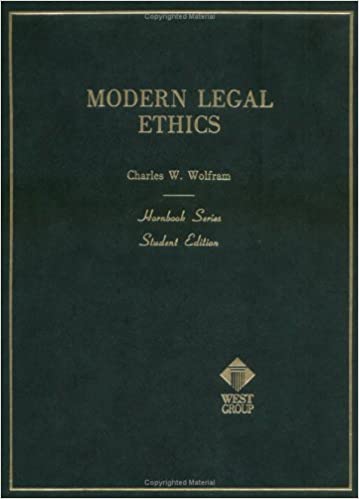NO SEX FOR LAWYERS AND CLIENTS TOGETHER, EXCEPT. . . .
Michael Sean Quinn
www.michaelseanquinn.com*
The “Model Rules” of the American Bar Association are the central model for the rules of professional ethics for lawyers in virtually all jurisdiction, with some variations and a few exceptions. Client-attorney (and attorney-client) sex is one of the situations where there are variations, but everywhere there are restrictions. We done want Bill Cosby-esque lawyers representing female clients in divorce cases.
However, the ABA Model Rule 1.8(j) part of the rule entitled “Conflict of Interest: Current Clients: Specific Rules” reads this way: “A lawyer shall not have sexual relations with a client unless a consensual sexual relationship existed between them when the client-lawyer relationship commenced.”
This rule has real problems. First, it is a “one size fits all[, as it were],” rules. It prohibits a lawyer from having sex with a client if both of them are mature adjusts capable of making prudent decisions.
Second, it makes it sound like lawyers have such powerful and compelling personalities that no client “connected to it” can make a rational and prudent decision about having voluntary sex with that lawyer.
Third, it prohibits a sexual relationship when L has represented C for years. They no each other well and have “forever”–say, back to high school. And both have a deserved reputation for solidarity.
Fourth, it makes it sound like all clients of lawyers are weak and incapable of prudent rationality when it comes to their bodies, at least during the lawyer-client relationship. Thus the rule is inherently disrespectful of anyone who is a client. (“You are not in a position at a time in you life when you need a lawyer to make reasonable decisions as to sexuality, therefore we–the Bar–must protect you from our members and from yourself.”)
As usual with rules like this, the imagination of most or all readers of this rule will picture the lawyer as being male and the client as being female. Now turn it around so that the lawyer is a woman and the client is a man. Is it likely that the same attitude would prevail in those evaluating the rule?
Perhaps the law was written with a paradigm in mind like the mistreated woman devastated by her wrecked marriage who is subject to exploitation, dependency, and/or the will to seek revenge against her soon to be ex-husband. Variations on this paradigm are certainly floating around American culture big time just now, but feminism demands that women be protected from the Cosby’s but at the same time recognizing their strength and rationality.
This is a bad rule or suggested rule, even granting its noble–if ignorant–purpose. Besides, it creates unnecessary problems, and this is a fifth point. Consider the person who is about to be become the lawyer for C, but hasn’t yet, and C who is about to become the client of L, but hasn’t yet. Now suppose they have have sex on the night before the client-lawyer relationship commences; under Rule 1.8 any sex they have thereafter is within the rule, so long as it is otherwise legal and not inconsistent with other professional conduct rules. But now consider L and C defer their sexual engagement until the evening after the client attorney relationship has begun. In that case L has violated Rule 1.8(j), and will continue to violate the rule each time they have sex.
Sixth, suppose Larry and Cleo went to college together intended marriage, has a passionate love affair, but it came to a bad end, much to their regret. Each marries another. Their spouses pass on, or there are divorces, or there is a mixture of endings. Larry and Cleo meet again. Cleo needs a lawyer; Larry is therefore her, but. . . . Has the conduct of Larry and Cleo 20 year before brought Larry within the protection of Rule 1.9(j)?
Creating these situation was and remains silly. Imagine what a complaint to the bar might look like. It might take many, many forms. Some of them will be sensible. Some will be absurd.
It is perfectly clear that a “reasonableness arrangement” is what is need, just as that criterion is used in many other professional conduct rules. I have difficulty imagining how sensible, intelligent, prudent, cosmopolitan, and worldly lawyer dreamed this dogma up. I don’t see how a rational person–whether man or woman–could subscribe to this general thoughtless rule.
The Law Firm[s] of Michael Sean Quinn et
Quinn and Quinn
1300 West Lynn Street, Suite 208
Austin, Texas 78703
(512) 296-2594
(512) 344-9466 – Fax



Recent Comments